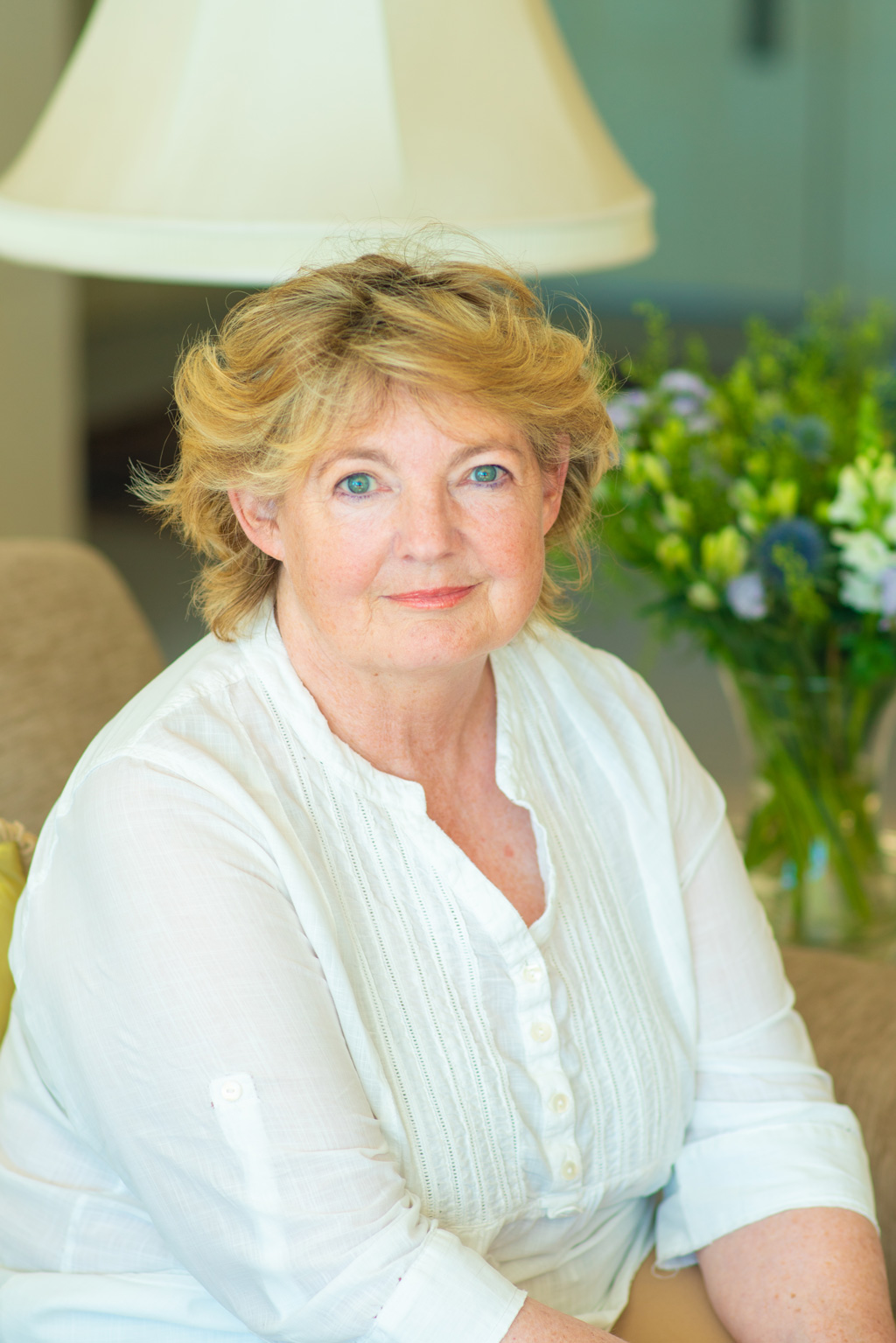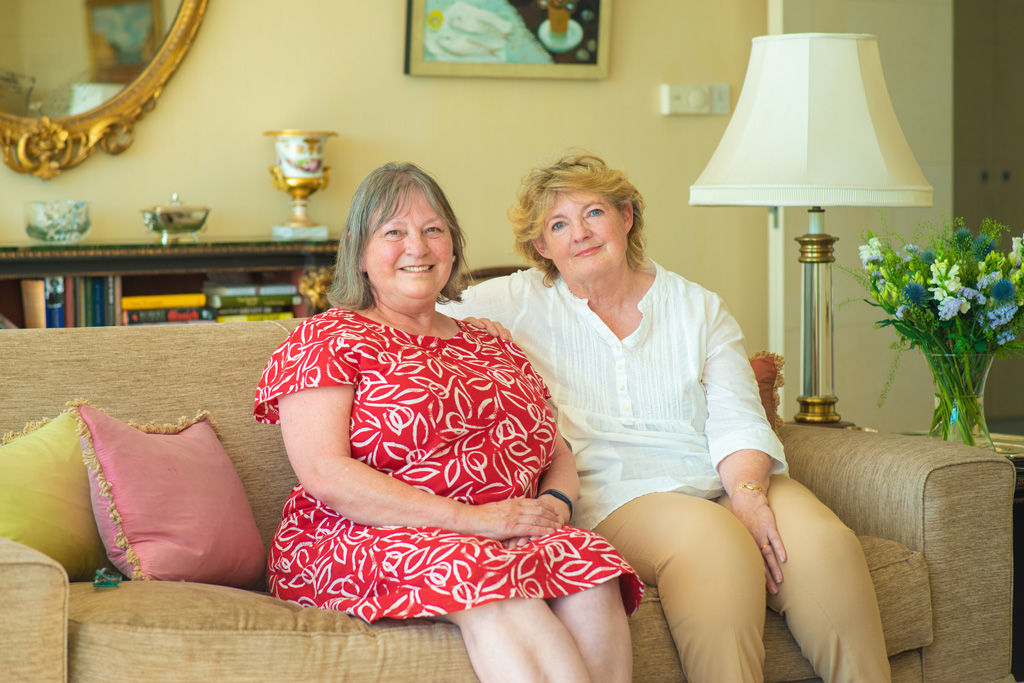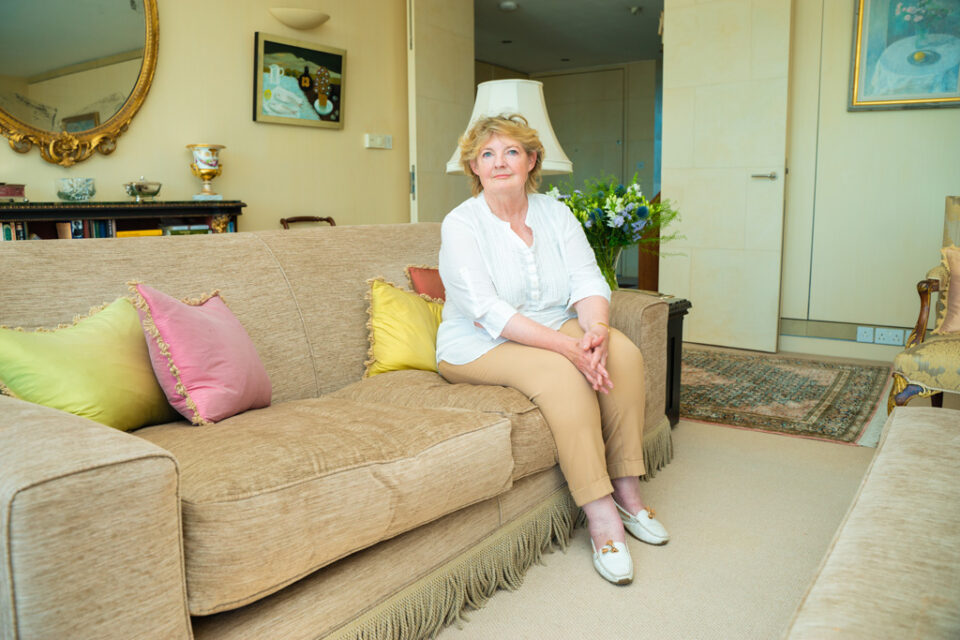We met with Rosamund Horwood- Smart, QC, for afternoon tea and a lovely talk about all things ISH, international friendship and women in leadership.
We are going back to the late 60s early 70s, which is a hell of a long time ago. I came to ISH because I was reading for the bar. I had been offered a place at Cambridge, but not for that year, and I had discovered that I could read for the bar and be called when I was 21. That seemed like a very good idea to me. In truth, 21 felt like such a very long time ahead, it did not occur to me I would ever actually qualify. Tom, my boyfriend, was coming to London and was living in a house in Park Village West.
I was looking up hostels and I saw International Students House which I discovered was just at the end of the road that Park Village West was on, and I discovered that a friend of mine was the guy who had laid the foundation stone in 1964. A chap called Harry Pilkington. At that time, you were interviewed to live in the House by somebody called Liz Ware. I brushed up all that I could think about International Relations and that is how I came to live at ISH. It was fascinating in those days. Mary Trevelyan was very much around. She used to come in and have coffee or lunch and she would talk about all sorts of things. At that stage I did not know about her close friendship with T S Eliot, I knew she was interested in poetry. I did know how passionate she was about international relations and how determined she was to make ISH work. They started ISH with a huge overdraft.

The thought of specifically being a woman in certain positions did not really occur to me in those days and I don’t think I was alone in this. I was a woman reading for the bar, a male-orientated profession. But I had two parents who were unphased by preconceptions – both very independent people.
In the early 1970s, there was major political unrest in the UK and London in particular. There were strikes, there were 3-day weeks, and there was no lighting in the House at some points. I remember making candles with Kathy Gordon – we would fill loo roll holders with wax and put in wicks in Chris Paton’s flat. You jolly well did get involved and there were elections for student representatives. I must confess that one of my election pledges was soft lavatory paper.
I headed up the Student Body for a while. In those days there were International Fairs every autumn, and there would be stalls representing different countries. The ground floor was absolutely packed with these stalls. There was terrific competition. There was Hervey Taunton and his calf from Jersey that ate the Malaysian stall. We would work through the night setting it all up and then the great and the good would come and open it. The Queen Mother one year, Prince William of Gloucester one year.

If you are invested in something; if you take ownership of it, it’s important to you. If you had a very happy time, as so many of us did, you want to encourage others too. Remember that back then it was not so very long after major wars and we felt vulnerable at times. We felt that there might be another all-encompassing war. As it is I think Covid is the nearest that my generation has come to feeling dread when you wake up in the night. That feeling was completely foreign to us when we were young but as we got older we realised we were vulnerable and then as the years went by we thought we were invulnerable. We really didn’t think that wars happened, they were something that happened in history or they happened a long way off with people with completely different mindsets. But at the time of the early 70s the need for international friendship, international understanding and all the things that Mary Trevelyan stood for, I think was very much in our minds and that need for international friendship continues today.
Indeed, it is more important, because so much of life is second-hand; it’s distanced, it’s behind a screen. If you actually live next to someone or have breakfast with someone or are commiserating with someone when they have broken up with their boyfriend or they are worrying about their exams, it’s a completely different relationship.
It’s so important to live with people from different countries.
Whilst I was living in the House there was a War in the Middle East. Both sides were living in the House and both sides were able to debate it, as they knew each other, respected each other, and liked one another. That could not have happened if they had just met on the debating floor without knowing each other.
I was a Governor at ISH from 1978 onwards and I chaired the House from the mid-1990s to 2005. At that stage, I knew everything about the House. One of my objectives was moving Governance of the House onwards and that meant we had to say goodbye to a number of Governors who had been in place for about 30 years, of course, by example I brought in Baroness Diana Warwick with a view to succession. I made it clear I would resign at the first appropriate moment which was in 2005.
ISH does benefit more from having women in leadership. I think single-sex anything is not particularly helpful. I grew up with single-sex schooling and I grew up at a time when women were not expected to be the breadwinners. They were not expected to necessarily have leadership roles in their communities. There always were women of course, who did step forward but often quite accidentally and often because they were simply brought up to think of themselves as human rather than as specifically female.
At the time I moved into ISH the ratio was 90% men to 10% women because a great tranche of women arrived at the same time in September. It very quickly became a much more evenly balanced community and of course, ISH had always had members who were not living at ISH but using the facilities at ISH. I did not think of ISH as being male-centric at all, it just was a community.
Mary Trevelyan and Liz Ware were in charge of the House and they were building a community, full stop. They were intentional about it and for them both, but particularly for Liz, there was a very strong Christian ethos. She was reaching out to the lonely and to those with problems. The UK contingent had a specific role to play, which was to also be hosts to fellow students. So, if you look at my parents’ Visitors Book at that time, most weekends, I would be hopping on the train at Liverpool Street with groups of people who would come and stay for an English country house weekend.
Going back to the role of women, I think that these days women appear to me to be very much more vulnerable than they were then. What with trolling, what with really negative influences with social media and all the rest of it? But I am fascinated to see what will happen next. I think there is going to be a change. I think there is quite considerable revulsion about the way in which people are using and abusing the media. I think people long for the frank; the straightforward and no extra agenda in their lives. If you send someone a text you are not expecting it to be broadcast. I think the idea that you have control over social media is complete fiction. The number of cases I have had where both men and women have been appalled that their private and very intimate communications have been broadcast is just dire. So often a perfectly innocent event, photograph, whatever it might be, can be presented in another way which is very dark and is positively criminal and of course, I am dealing with that on a fairly regular basis.
I was called to the Bar In 1974. I took Silk in 1996. (A Silk lawyer is the colloquial name given to a Queen’s Counsel (QC), a senior barrister (in England) or advocate (in Scotland) who is selected by an independent panel committee due to their knowledge, experience and skill.) I was the 70th woman ever to take Silk. Now there are about 500 women Silks and that’s just between 1996 and 2021. It just shows how once women are in the profession, it opens up. But I do think that women in any profession have a really important role in encouraging other women in the same profession or other professions. I think it is really important to mentor others particularly young ones at the beginning of their career.

